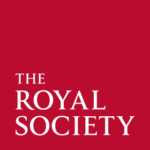From its earliest days the LMB has attracted and trained first class scientists from around the world – creating a diverse community for the exchange of ideas and technical innovation. The LMB provides excellent opportunities for early career and established researchers – people with the potential to lead their field. A high percentage of LMB students and post-docs stay in research or science related fields after they leave the LMB. The LMB supports the wider scientific community by supplying highly trained scientific leaders. They leave the LMB to develop and support molecular biology both in the UK and throughout the world.
Tony Hyman announced as next EMBL Director General

LMB 1984-1987, PhD student, Scientific Staff, Cell Biology
EMBL Council have selected Tony Hyman to serve as the body’s next Director General with his mandate beginning on 31st March 2026. Tony is a Group Leader at the Max Planck Institute of Cell Biology and Genetics in Dresden, Germany, where he investigates biological condensates and phase separation in health and disease. He is not the first LMB alumnus to assume position of Director General at EMBL; he follows in the footsteps of John Kendrew who was a driving force behind the establishment of EMBL in 1974 and served as its inaugural Director General until 1982. More…
Arun Prasad Pandurangan elected Fellow of the Linnean Society of London
LMB: 2017-2021, Investigator Scientist, Structural Studies
In recognition of his research on structural bioinformatics and the evolution and function of proteins, Arun Prasad Panduragan has been elected a Fellow of the Linnean Society of London. Founded in 1788, the Linnean Society is the oldest learned society dedicated to the science of natural history. More…
Bill Scott (1963 – 2025)
LMB 1993-1996, Postdoctoral Scientist, Structural Studies
LMB alumnus Bill Scott died on 8th October 2025, aged 62. Bill was a postdoc in the LMB’s Structural Studies Division from 1993 to 1996, working with Aaron Klug. During this time, he was awarded the LMB’s postdoctoral prize for outstanding research. Since 1998, he has led a research group at University of California, Santa Cruz in the Department of Chemistry and Biochemistry and the Center for Molecular Biology of RNA. His research was dedicated to understanding the role of RNA in the origin of life. More…
Life Sciences Breakthrough of the Year for Melina Schuh’s work to visualise ovulation

LMB 2008-2016, Senior Investigator Scientist, Group Leader, Cell Biology
Melina Schuh’s work has been announced as the 2025 Science Breakthrough of the Year in the Life Sciences category by the Falling Walls Foundation. The accolade recognises her group’s achievement to visualise the entire ovulation process in mouse follicles in real-time utilising a newly developed live cell microscopy method, offering new insights into the surprisingly robust ovulation process. More…
Sarah Teichmann: Science always wins if we work together
LMB 1996-1999, 2001-2013, PhD Student, Group Leader, Structural Studies
The Journal of Experimental Medicine spoke to Sarah Teichmann about expanding beyond academic science in your career, dealing with uncertainty in the workplace, and being able to carve out time for yourself despite having multiple demands on your time. More…
Richard Sever awarded the Royal Society Research Culture Award

LMB 1992-1996, Ph.D. Student, PNAC
The Royal Society Research Culture Award 2025 is jointly awarded to Richard Sever and John R. Inglis for contributions to improving the scientific system and changing the culture of scientific publishing, through the development of the first preprint servers for the life sciences and medicine. More…